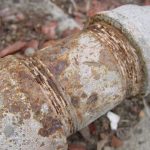Many homeowners and business owners are intrigued by the possibilities of a tankless water heater. Although there are efficient ways to heat water on-demand, they are quite different from a traditional water heater that has a water tank. Understanding a little about how these types of water heaters work can make a huge difference if you’re considering an installation. In this article, we will look at six key aspects of tankless water heaters to help you make an informed decision.
- Inconsistent Water Temperatures
Installing a tankless water heater is an efficient way to get access to hot water on-demand. But, this type of water heater can still develop problems if it’s regularly maintained by a professional plumber. If you’ve noticed that your tankless water heater is developing hot water at variable temperatures, check the thermostat first. Generally speaking, you want the thermostat set under 120ºF, but it needs to be hot enough to meet your needs. In many cases, a simple thermostat adjustment will correct the problem. If you water it completely cold, the thermostat may be faulty, and it’s time to call your local certified plumber to find the cause of the problem and fix it for you.
2. Insufficient Hot Water Volume
A tankless water heater should have a useful lifespan of around 20 years if the equipment is well maintained. Many people don’t schedule inspections or maintenance for their plumbing systems, and this can lower the projected lifespan significantly. As the name suggests, tankless water heaters don’t have a water tank. In a traditional water heater, the sediment found in the water supply ends up at the bottom of the water tank. This causes other problems, but in a tankless water heater that sediment can build up in the heater unit itself. The potential buildup of sediment can lower the efficiency of a tankless water heater leading to a lack of performance. The best way to solve this problem is to look at the underlying issues that are causing the buildup of sediment in the first place. The most common cause is hard water, and installing a water softener will make your water easier to work. Softened water is kinder to your water using appliances, including your water heater.
3. Gas Line Considerations
If you have a water heater with a storage tank, it may take a little work to install a new tankless water heater. The process is not as straightforward as many people believe, and a key consideration is the gas line. A tankless water heater will use gas as a fuel source which means that you need a gas line for the unit. If you already have gas in your home, this will require some work to run a line to that area. If you don’t have gas, this will require a considerable amount of work, but the efficiency benefits will be worth the investment. It will also be necessary to install a vent that will be needed to remove the exhaust gases outdoors.
4. Instant Hot Water On-demand?
Well, not exactly. A tankless water heater is a great option to heat your water, but the delivery isn’t as instant as you might imagine. When the water is turned on, there will still be a slight delay because the hot water needs to travel along the pipes. In reality, the time that it takes for the hot water to reach your faucet will be around the same as it would be if you were using a traditional water heater with a storage tank. If you really need instant hot water, it’s a good idea to look at a circulation system that you can install alongside a tankless water heater. This will keep hot water in your pipes consistently, and every time you turn on a tap, you will get immediate access to hot water. This may be a little extreme for the average home, but it could be a good option for a medium to large business where plenty of hot water is needed.
5. Protecting Your Investment
One of the most attractive aspects of a tankless water heater is the improvements in energy efficiency. Using gas is a less expensive way to heat water, but an efficient tankless water heater can really make a huge difference to your utility bill. But, it’s important to protect your investment with regularly scheduled maintenance. As we mentioned earlier, a tankless water heater can last for at least 20 years if you take good care of the unit. When your new water heater is still under warranty, it may even be a requirement to arrange some regular professional maintenance.
6. Choose a Professional Installation
If you read up to this point, you’re probably starting to realize that a tankless water heater installation isn’t a simple task. Many people believe that they can simply swap out an older water heater and put in a new tankless unit, but this is not the case. Even if you have good DIY skills and some basic plumbing knowledge, it’s a good idea to choose a professional installation. Working with gas lines, installing vents for the exhaust gases, and carrying out a safe installation is a task for a plumber. A local certified plumber can offer advice on inspection and permitting requirements for your home. If you consult them in advance, they can even help you to choose a tankless water heater that will meet all your hot water needs.
In Conclusion
Making a switch to a tankless water heater makes good economic sense if you want to lower your utility bill without sacrificing your home comfort. This type of water heater can solve a lot of problems in your home, but there are some key things that you need to bear in mind. A professional installation and regular maintenance are essential if you want to maintain efficiency and protect your investment.
If you’re considering tankless water heater installation for your home or business, contact your local certified plumber for expert help and advice.
By Giovanni Longo President Flood Brothers Plumbing
Giovanni Longo is a 3rd generation master plumber who has been practicing his craft and trade in the greater Los Angeles area for well over a decade and a half. A plumbing and hydraulics-engineering innovator, Giovanni’s particular world-class expertise focuses on dealing with challenging sewer system designs as well as resolving complex commercial and residential draining issues. As a certified Flood Mitigation expert, he is also well versed in a wide variety of water damage and remediation solution.





